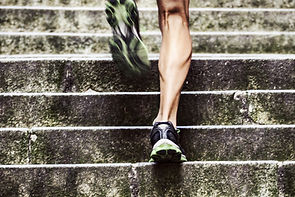The negative effects of caffeine on athletes
The positive effects of caffeine on athletes
- Claude Bernard -
“The joy of discovery is certainly the liveliest that the mind of man can ever feel”
ATHLETES


-
Caffeine does not appear to benefit short term, high intensity exercise (eg. sprinting)
-
Because each person responds differently to caffeine, don't assume you'll perform better with a caffeine-boost. You might just end up nauseated, coping with a "coffee stomach," or suffering from caffeine jitters at a time when you're already nervous and anxious.
-
Although caffeine does not appear to significantly alter water balance or body temperature during exercise, dehydration is a potential concern because caffeine is a mild diuretic.
-
The affects of caffeine on performance have proven significant enough to result in some regulation of the stimulant.
-
Caffeine is one of the best-tested ergogenic aids and is known to help athletes train harder and longer.
-
Caffeine stimulates the brain and contributes to clearer thinking and greater concentration.
-
A low-to-moderate dose of caffeine between 3 and 6 mg appears to be sufficient for enhancing performance in a maximal sustained endurance effort.
